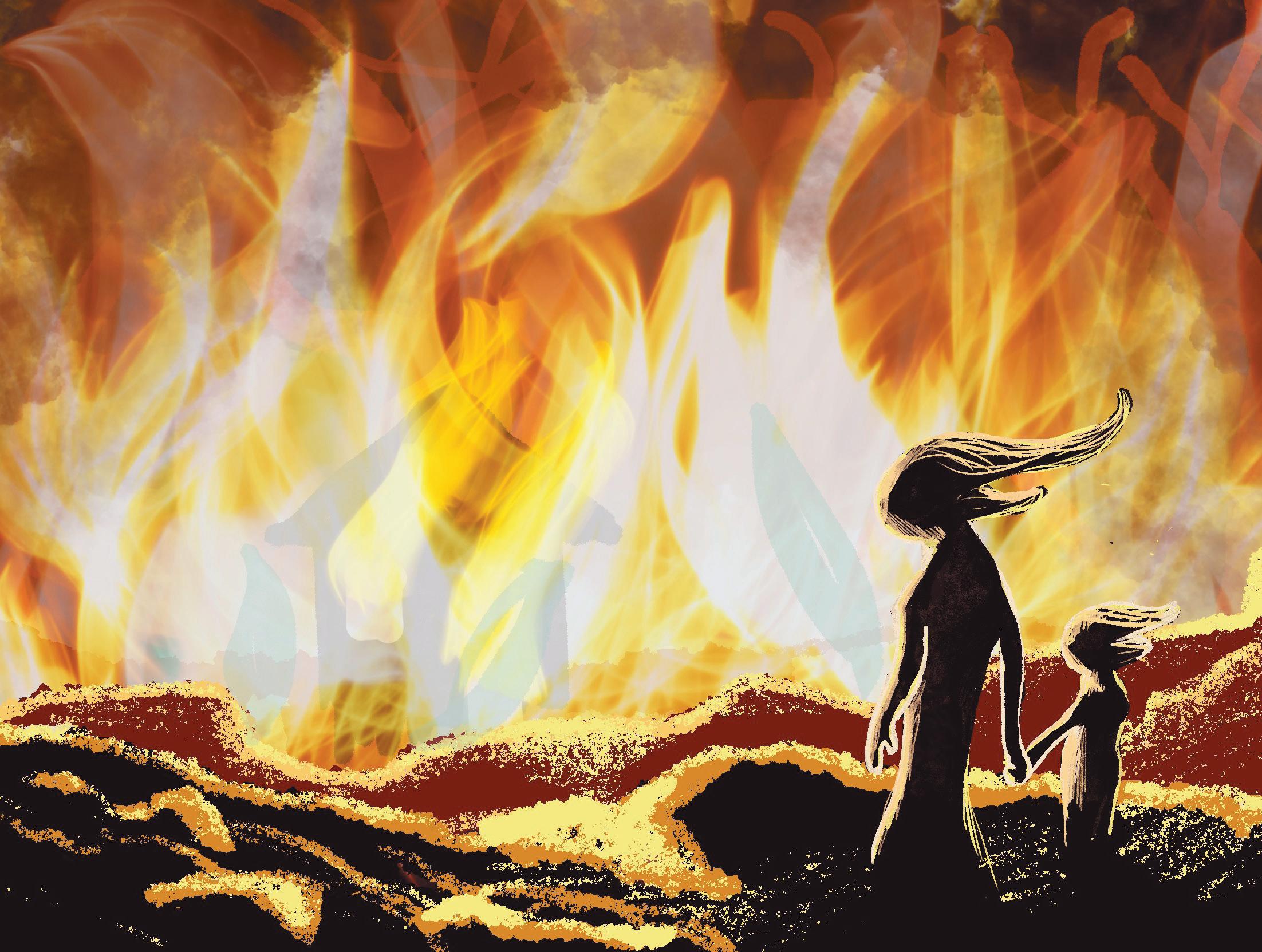
1 minute read
chopin on the beach a love letter to piano
from post- 4/28/2023
by Leanna Bai
The first chord of Chopin’s Nocturne No. 13 is a low, resounding C that beckons you—slow, crashing waves meet your feet as the moon gazes at your form. Hands alternate between soft bass notes that sink into your core and a high-pitched melody that yearns. This dance drives you through the scene, a steady march toward some impending doom.
Advertisement
This Chopin piece occupies its own little room in my heart. My piano teacher introduced it to me when I was 16, and I quickly decided to take on the challenge of doing it justice. It is dark, angsty, and swimming with emotion too vast to convey with words, perfectly fit for the turbulent teenage mind.
When I play a piece, I conjure stories that go along with the mood and tone of the piece—a habit that began in early childhood. I have pictured bunnies hopping in fields, bells clanging in a small European town, and shimmery water that bounces in a fountain. Piano has allowed me to explore emotions and perspectives that do not belong to me, to occupy a new space or temporality by uniting myself with figures of the past, hidden objects, and neglected moments.
“It is dreadful when something weighs on your mind, not to have a soul to unburden yourself to. You know what I mean. I tell my piano the things I used to tell you.”
— Frédéric Chopin
Chopin wrote dramatic compositions that bared his soul to pianists centuries later, and in the six minutes that I play his work, I latch onto a piece of it. I am the composer standing in the waves, contemplating the depths of my loneliness.
His words settle in the pit of my stomach. As I play through his composition, the melody pierces a still night sky—its arc feels like a call that dissipates into the rough edges of the shore. The nocturne tricks you into thinking you’ve reached its end, steady chromatic chords dragging the listener toward home, but your eyes scan the surrounding beach and meet the kindred gaze of the moon.
The piece continues. My fingers land on a soft yet resonant C major chord. I pause for a beat too long, feeling the sound waves in perfect harmony crash into my body. C major, commonly designated for joyful celebrations or grand openings, takes on a different tonality—a certain sorrow with a sliver of hope. This section is part funeral march, part serenade.
The moon glows on a pitch black backdrop. Eyes glued to the celestial body, you scale the jagged rocks of the shore, yet to be smoothed by the tides. The rich harmonies rush through the air as a gust of wind, encouraging your steady climb...







